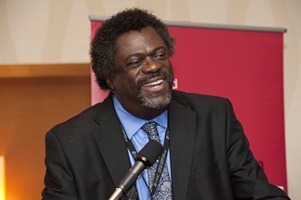Diversity in Gender: The Y Factor

Ernest Grant is the nursing education clinician for the North Carolina Jaycee Burn Center where he has been employed for the past 29 years. In his present role, he is the director of Outreach and Prevention and serves as the Burn Center’s liaison for pre-hospital, hospital, allied health professionals, corporate entities, and military personnel. He promotes continuing education on the immediate care of burns, wound care treatment modalities, and the prevention of burn injuries. Ernest serves on several national committees that establish the standards for the care of burns and fire prevention. He has received numerous honors and awards for his work in the prevention of burn injuries, and for his work with nursing students and the nursing profession, including the American Burn Association’s Burn Prevention Award, the Governor’s Award of Excellence (the highest award given to a state employee) and the 2003 National Nurse of the Year Award sponsored by Nursing Spectrum Magazine. He has written numerous articles for publication in scientific and research journals and chapters for textbooks. He currently serves as a reviewer for journal articles for the Journal of Burn Care and Research, the official journal of the American Burn Association. He has recently completed a six- year term on the Board of Directors of the American Nurses Association and is the immediate past President of the North Carolina Nurses Association. In 2011, he was inducted as a Fellow in the American Academy of Nursing. He is currently the Second Vice-Chair of the National Fire Protection Association Board of Directors. Always believing in life-long education, he is currently in pursuit of a PhD in Nursing at the University of North Carolina at Greensboro.
_________________________________________
Session Overview:
The degree to which students feel they fit into the fabric of the institution is a crucial component of their decision to stay or leave when faced with challenges. Male nursing students frequently may sense they are in an environment where they might not belong. Being a cultural outsider may lead to a crisis of competence and fears of academic inadequacy. This presentation is a personal narrative of Grant’s journey in nursing and identifies the strategies that lead to success. Nursing faculty are key in creating a classroom environment that connects underrepresented students to the campus environment, resulting in higher rates of success.